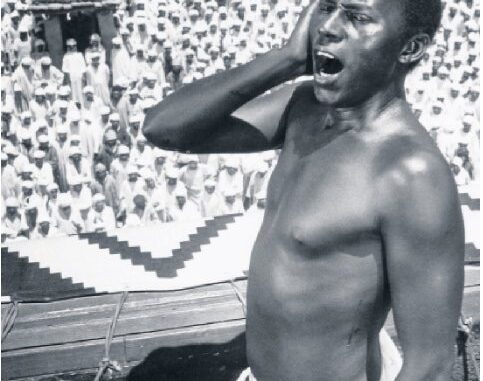
Racism is an age-old scourge affecting everyone including Muslim communities. It’s a tough but necessary conversation to have.
As the Black Lives Matter protests came to my neighborhood, I faced a dilemma. I have a responsibility as a parent to talk honestly with my kids about the pervasiveness of racism – not just in America, but in Muslim societies around the world, including my native Egypt. But I also want my kids to be proud of their heritage. How could I help them confront reality without becoming self-hating?
I am not comfortable sending my daughter to youth classes at the local mosque (she needs to be kept safe from the influence of the instructors and the textbooks they use). So I have been teaching her religion over dinner, telling stories about Islam’s earliest days. Here’s how I used Sirah to broach the difficult topic:
- Do you remember Sayidna Bilal?
- Of course, he was the first Muezzin in Islam
- But where was he from?
- He was a freed Ethiopian slave. Sayidna Abu Bakr paid for his release from slavery after his former master tortured him for being a Muslim.
– Did I ever tell you the story about the day the Prophet took Mecca?
- You mean when they lit thousands of lights and the Meccans gave up, only for the prophet to forgive them? Of course, Dad!
- But do you know what the Meccan elite said when Sayidna Bilal climbed atop the Kaaba after it had been cleansed of idols and did the first call to prayer from the roof?
- No?
- The Meccan elders were so upset to see a Black man atop their shrine that they said: “Couldn’t Mohamed find anyone but this ‘black crow’ to do it?”
A horrified look crossed my daughter’s face.
- That’s so racist! It’s disgusting, Bilal was the FIRST muezzin!! He was the prophet’s companion!
- It didn’t matter to them, all they could see was his skin color. Rather than seeing a fellow human being they could only a black crow. The racism from that moment never fully went away. It’s still embedded in our community.
I moved on to tell her about my own childhood experiences, 1400 years after Bilal’s call to prayer in Mecca. We Egyptians have a racism problem that we often don’t like to talk about. From black faces in movies to referring to people with dark skin as “Abd” or “Abeed” – black skin means slave, even though we love telling the story of Sayidna Bilal and how Islam emancipated slaves
This racism continues in our community here in America, inflicted on fellow Muslims with dark skin. The truth, I old my daughter, is that racism remains deeply rooted in our minds.
I had shocked my daughter enough during dinner time, I wasn’t about to tell her about the bigotry in South Asian Muslim communities. It was already too much for one evening.
